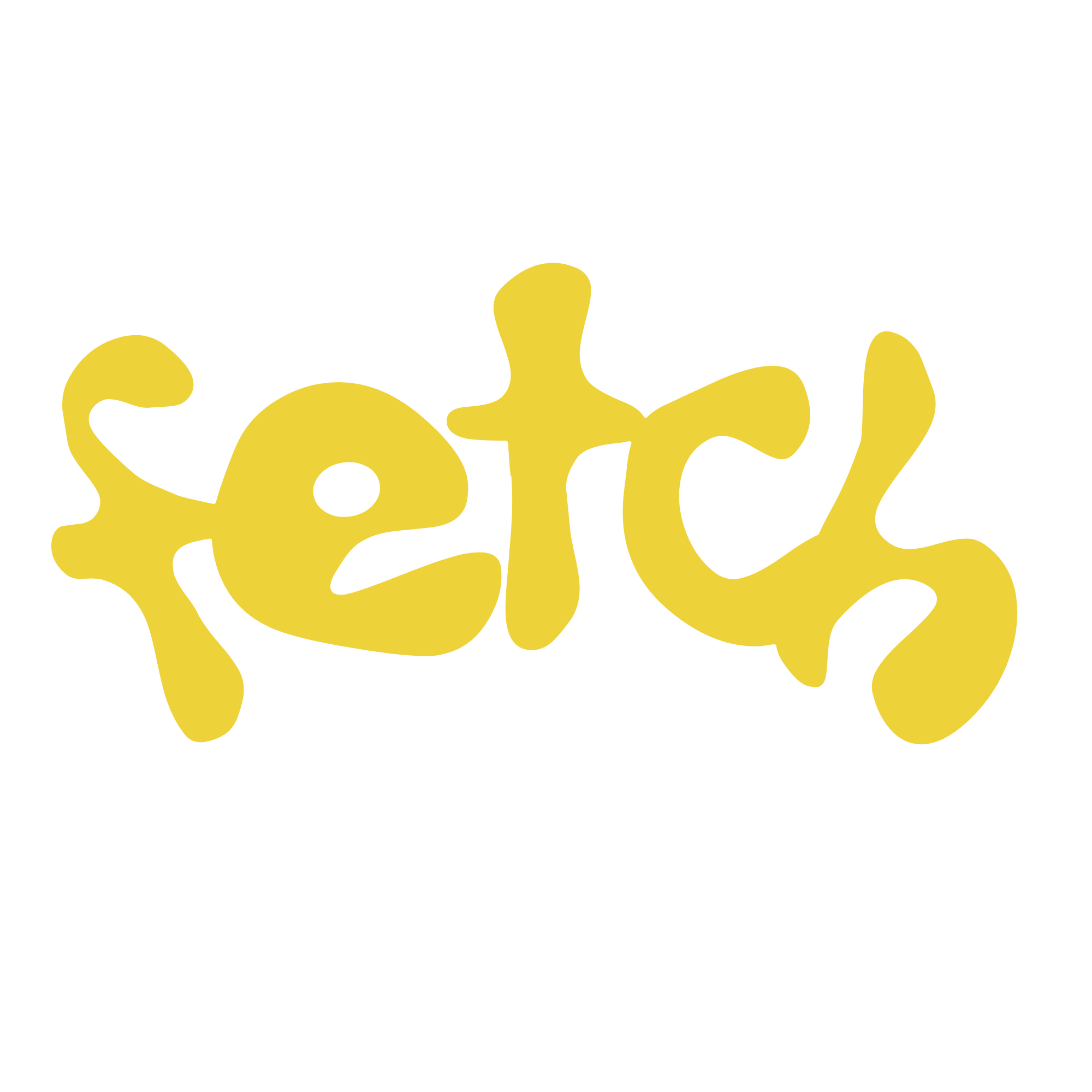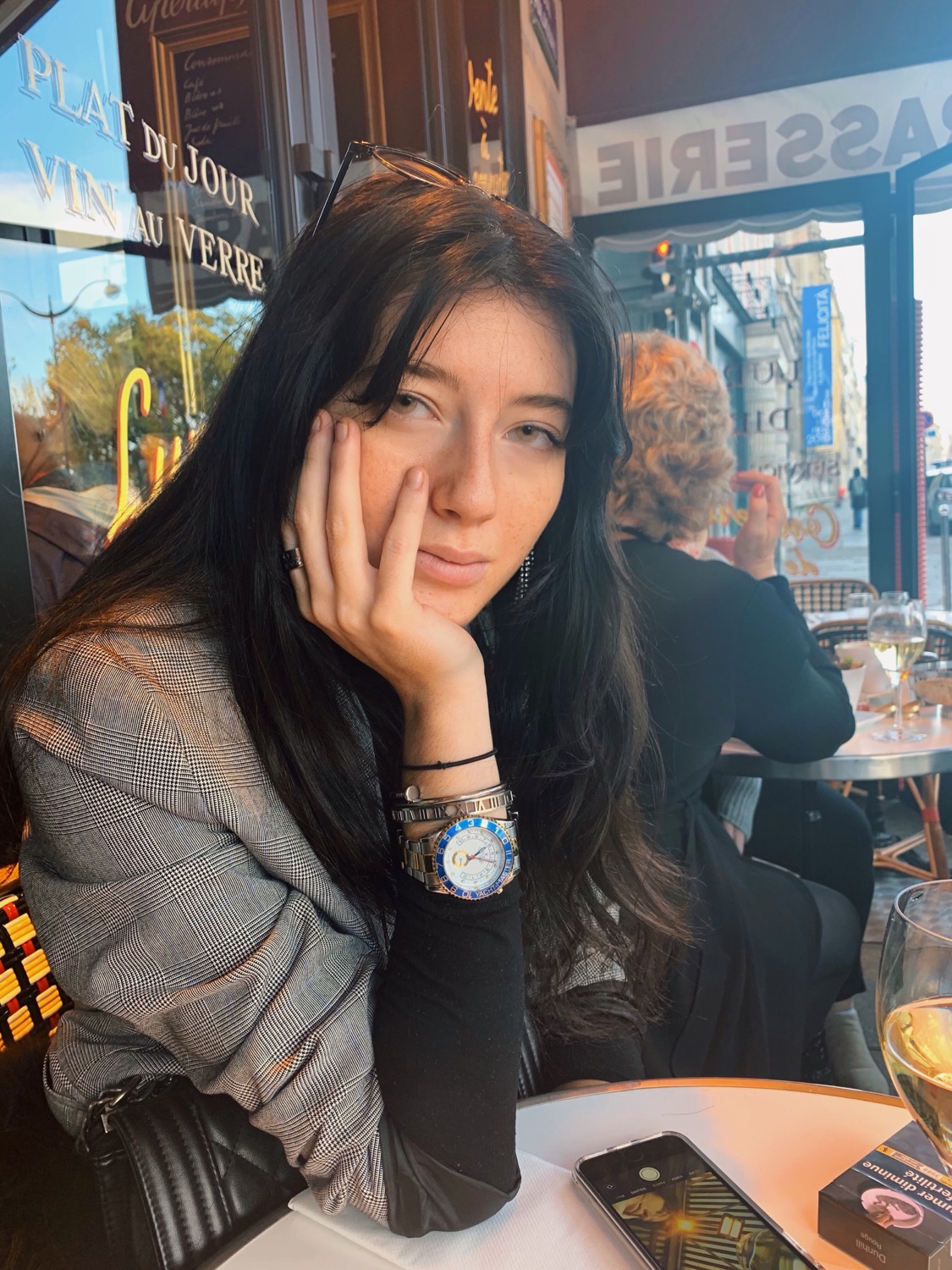FETCH FEATURES | RIFKE SADLEIR
- Victoria Comstock-Kershaw
- Feb 6, 2020
- 4 min read
Updated: Apr 10, 2023
Rifke Sadleir is making waves: from striking Instagram filters to the dynamic RIFKE WORLD website, the artist sits down with FETCH to chat about the London coding scene, interactivity in art, and the future of face recognition.

When did you realise that coding was something that you wanted to do?
I think I realised in university - but it was quite a slow burner; I started out doing it as a side thing, along with design and illustration, and then it ended up being the thing that took up the most time and the thing I was willing to put the most time into. People like Ezra Miller and BONG inspired me - they do really playful, really interactive websites and were some of the first that I saw and make me think 'Oh, you can make websites that are actually really off the wall and fun!'.
What is the coding scene like in London?
I was one of the few people from my graphic design course that decided to go down that route. It was an easier way for me to get jobs rather than battle in out in graphic design. Within London, I'm definitely on the side of the creative coders. There's the real techy coders on the other side, but there are quite a lot of us that come from a design background and taught ourselves - and most people from that background are self taught to an extent, so we're all willing to help each other out.
Does being self-taught help?
When I started freelancing, it was scary at first. I felt like, 'I have no idea what I'm doing, I feel like a fraud.' But being self-taught was a good way of building the confidence to teach yourself new stuff. I think if I had learned [coding] in a formal way, I would be a little bit scared of approaching things that I didn't know yet, or new languages. So it's quite nice to be like, 'I can bowl along until I manage to work out what's going on.'
You talk about interactive design being a really core component of your work. What is it about interactiveness that inspires you so much?
I like the way that you can have a piece of work that isn't really complete until a user interacts with it or uses it. I think with static design, it feels a bit scary to do something while thinking, you know, 'I've got all the control'. It's nice handing over the reigns to someone else, and seeing what they end up doing with it.
The Instagram filters felt like a natural progression from what I was doing. I knew I could code them, it's a like a weird hybrid of Photoshop and interactivity. They're not immediate, but there's also not serious, which I quite like: it's not like you're making art, you're making something for people to take selfies with. It's almost like an interactive meme in that way. Usually I'll get a stupid idea in my head and be like, I wonder what will happen it I did this thing! The most recent one I've been working on combines two peoples faces, puts it on the face of something else and says 'This is what your baby would look like!' I went downstairs and terrorised my housemate with it... I shouted, 'smile with me into the camera!', first thing in the morning.
I'm also working on a project that uses facetracking through the camera, with a 3D person that follows your movements... I've been allowed to kind of run away with the whole thing, but it should be released soon.
You said that your latest Instagram filter - created for Refinery29 and Converse - was made with the intention of encouraging people to use it outside. What brought on this decision to merge nature and technology?
It was partly because the brief called for something around a quite outdoorsy shoes - but it was nice to have that restriction in place. I spend so much of my time sat inside at my computer, I thought it was a great opportunity to get people outside.
What do you think the future of this facial recognition technology is?
It all depends on who owns the technology and how locked up it is. What I find weird is how Apple hove taken away motion tracking on websites, but they still allow apps to use it; so you can use apps to trace faces but there are barriers for mobile browsers... I find it really strange. I think it means that more of our data is going to be pushed over to big corporations. But I suppose that's already happened anyway.
But I think that a lot more people are going to get into coding. My 11 year old cousin was telling me how they she's about to start learning how to code at school and that everyone's going to do it. I remembered IT lessons for us - no-one opted in because is was just spreadsheets and flowcharts. But now kids are learning to code, which is really cool. I think because of that, more languages and frameworks are going to keep springing up. I feel like if that technology is in the hands of more people... that's got to be a good thing, really.
Do you have any advice for someone who might be looking to get into coding?
Use online resources like Codecademy and - if you can - find someone to mentor you or a friend to learn with and encourage you. Also, don't try and learn everything at once - set yourself projects, or get someone else to to give yourself that slight pressure to get it done. A bit of blind panic goes a long way.
Image credits: Reece + Dean, Rifke Sadlier




